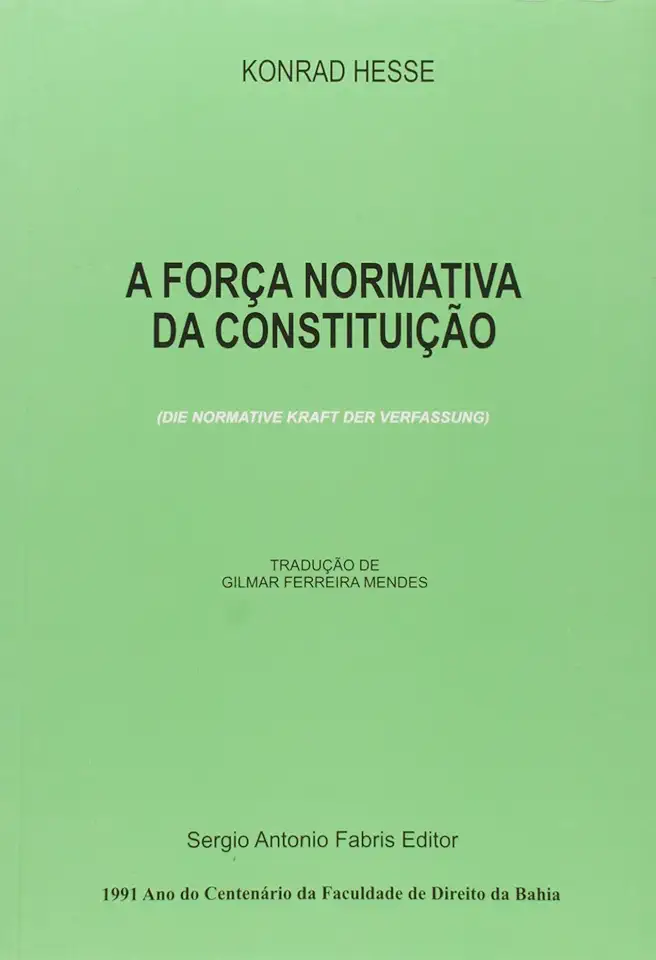
The Normative Force of the Constitution - Konrad Hesse
The Normative Force of the Constitution: A Masterpiece of Constitutional Theory
In his seminal work, "The Normative Force of the Constitution," Konrad Hesse presents a comprehensive and thought-provoking exploration of the fundamental principles that govern constitutional law. Through a rigorous analysis of legal and political theory, Hesse argues that the constitution serves as a normative framework that shapes and legitimizes the exercise of state power. This book is a must-read for anyone interested in constitutional law, political theory, and the foundations of modern democracy.
A Foundation for Constitutional Law
Hesse begins by establishing the constitution as the cornerstone of any legal system. He argues that the constitution is not merely a collection of legal norms, but rather a higher-order framework that provides the basis for all other laws and regulations. The constitution sets out the fundamental principles and values that guide the functioning of the state and establishes the limits of state power.
The Constitution as a Normative Order
Hesse's central thesis is that the constitution has a normative force that binds not only state institutions but also individual citizens. He argues that the constitution creates a normative order that shapes the behavior of individuals and institutions within society. This normative force is derived from the constitution's status as the supreme law of the land and its embodiment of the collective will of the people.
The Legitimacy of State Power
Hesse emphasizes the role of the constitution in legitimizing the exercise of state power. He argues that the constitution provides a framework for the legitimate use of power by state institutions. By establishing clear rules and procedures for the exercise of power, the constitution ensures that the state acts in accordance with the will of the people and respects individual rights and freedoms.
The Role of Constitutional Interpretation
Hesse also explores the role of constitutional interpretation in giving effect to the normative force of the constitution. He argues that constitutional interpretation is not merely a technical exercise, but rather a process of balancing the abstract principles of the constitution with the practical realities of governance. Constitutional interpretation must be guided by the fundamental values and principles enshrined in the constitution and must aim to achieve a just and equitable application of the law.
The Constitution and Social Change
Hesse concludes by examining the relationship between the constitution and social change. He argues that the constitution is not a static document, but rather a living instrument that must adapt to changing social and political circumstances. However, he also emphasizes the importance of preserving the core principles and values of the constitution in the face of social change.
A Must-Read for Constitutional Scholars and Practitioners
"The Normative Force of the Constitution" is a seminal work that has had a profound impact on the field of constitutional law. Hesse's rigorous analysis and persuasive arguments provide a deep understanding of the foundations of constitutionalism and the role of the constitution in shaping modern democracies. This book is essential reading for constitutional scholars, legal practitioners, and anyone interested in the principles that govern our societies.
Enjoyed the summary? Discover all the details and take your reading to the next level — [click here to view the book on Amazon!]